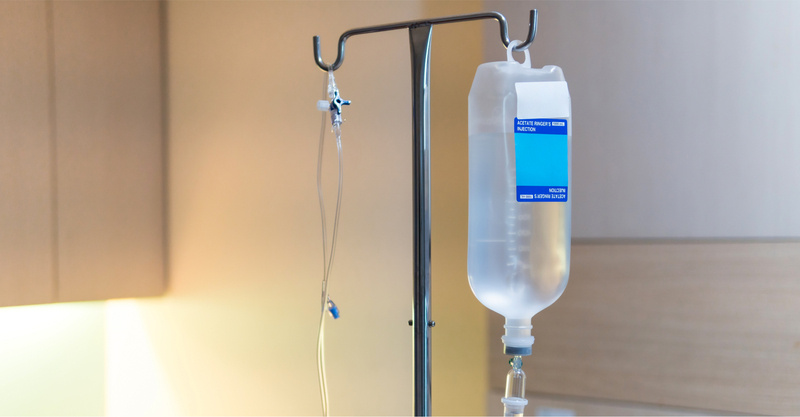Key Points
- Urgent care clinics provide quick medical attention but may have limitations on prescribing complex medications like Viagra.
- Telemedicine offers an alternative option for obtaining a Viagra prescription.
- Discuss pre-existing conditions and medications with a healthcare provider before taking Viagra.
Erectile dysfunction can be a frustrating condition to deal with. Viagra (also known as Sildenafil in generic form) is a medication that can help ease the symptoms of erectile dysfunction, according to the Mayo Clinic. If you’re ready to see if Viagra can help you, your first step is getting a prescription for it. To do that, you’ll need to visit a provider who is qualified to assess your health and decide if Viagra is right for you. One way to do this is by going to an urgent care clinic.
Urgent care clinics are a type of medical facility that provides immediate medical attention to patients with non-life-threatening injuries or illnesses. These clinics are designed to provide fast and efficient medical care to patients who require medical attention but do not need to go to the emergency room and cannot wait for an appointment with a primary care physician. Additionally, urgent care clinics can be a more affordable option for getting treatment for minor health conditions and injuries. Some urgent care clinics may have providers who are qualified to prescribe Viagra.
Services Offered by Urgent Care Clinics
Urgent care clinics offer a variety of medical services, according to HealthBenefitsTimes.com. Some of these services include:
- Treatment for the symptoms of colds, flu, and COVID-19
- Mild to moderate allergic reactions
- Closed fractures
- Muscle sprains or strains
- Minor lacerations that may need stitches
- Minor burns
- STD testing and treatment
- Treatment for the symptoms of a UTI
- Mild to moderate infections
- Lab testing and imaging services
- Physicals for work, travel, or sports
In addition to these services, urgent care providers can prescribe medications and treatments for a range of health conditions. Some urgent care clinics even have on-site pharmacies, which allow patients to fill their prescriptions immediately after their appointment.
Can Urgent Care Prescribe Viagra?
Urgent care clinics are designed to provide quick and convenient medical care for minor illnesses and injuries. However, they are not equipped to handle complex medical conditions or provide ongoing care for chronic conditions. They may also have limitations on the types of medications they can prescribe.
Viagra is a prescription medication that is used to treat erectile dysfunction. It is a complex medication that requires a thorough medical evaluation before it can be prescribed, according to the Mayo Clinic. Urgent care clinics may not have a provider on staff who can provide this type of evaluation. They may also be limited in their ability to provide ongoing care for patients who require long-term treatment with Viagra.
Getting a Viagra Prescription at Urgent Care
If you are considering getting a prescription for Viagra at an urgent care clinic, there are several factors that may affect your ability to get the medication. These factors include your medical history, current medications, and any underlying health conditions that you may have, according to Drugs.com.
Before prescribing Viagra, a healthcare provider will typically conduct a physical exam and review your medical history, according to Drugs.com. The Mayo Clinic notes that they may also order additional tests to rule out any underlying medical conditions that may be causing your erectile dysfunction.
In addition to these evaluations, your healthcare provider will need to evaluate what medications you are on. This is because certain medications can interact with Viagra and cause serious side effects, according to Drugs.com. If you are taking any medications, it is important to inform your healthcare provider before taking Viagra.
Urgent care clinics may not have access to your complete medical history, so this may limit their ability to prescribe you Viagra.
When to Consider Getting a Prescription for Viagra From Urgent Care
If you are dealing with erectile dysfunction, you may be wondering what treatment you can get quickly. While it may not be the first place you think to go, urgent care clinics can be a good option for obtaining a prescription quickly and conveniently—even when it comes to erectile dysfunction.
There are several situations where urgent care clinics may be the best option for obtaining a Viagra prescription. According to the Mayo Clinic, these situations include:
- Inability to get an appointment with your regular doctor
- Traveling
Not all urgent care clinics offer Viagra prescriptions, so it is important to check with the clinic before you go.
Checking with Your Health Insurance Provider
Before you go to an urgent care clinic for a Viagra prescription, you may want to check with your health insurance provider to see if the cost of the prescription will be covered or if prior authorization is needed.
Other Way to Get a Viagra Prescription
There are other ways you can get a prescription for Viagra if you are unable to get one from an urgent care clinic—including a primary care physician or urologist. If you already have a primary care physician you can schedule an appointment with them to discuss your options. Seeing a urologist may require a referral.
Another option for getting a prescription for Viagra is using Telemedicine services. “Viagra is a safe and effective treatment, and telehealth has made it even more straightforward to get Viagra online,” says Dr. Yael Cooperman, a medical education specialist at the telehealth company Ro. Telehealth allows you to consult with a healthcare provider from the comfort of your own home. In some cases, telehealth providers can determine that Viagra is right for you and send a prescription to your local pharmacy electronically.
Side Effects of Taking Viagra
When you take prescription medication, you may experience some side effects. The most common side effects for Viagra, according to the Mayo Clinic include:
- Headaches
- Dizziness
- Facial flushing
- Upset stomach
These side effects are usually mild and go away on their own, according to the Mayo Clinic. However, if you experience any severe side effects (like sudden vision loss or hearing loss) you should seek medical attention immediately.
Taking Viagra Safely
It is important to discuss any pre-existing medical conditions or medications with your healthcare provider before taking Viagra. This is because Viagra may interact with certain medications, according to the Mayo Clinic. If you have a history of certain health conditions, the Mayo Clinic notes that your healthcare provider may need to adjust your dosage or monitor you more closely while you are taking Viagra. These certain health conditions include:
- Heart disease
- High blood pressure
- History of chest pain
The Mayo Clinic also notes that Viagra may not be safe for everyone. If you are allergic to sildenafil (the active ingredient in Viagra) or if you have certain medical conditions, such as liver or kidney disease, you may not be able to take Viagra. Your healthcare provider can help determine if Viagra is safe and appropriate for you.
To recap—Viagra is a medication used to treat the symptoms of erectile dysfunction. Viagra is a complex medication and you must fit certain criteria to take it safely. Seeing a healthcare provider who can properly evaluate you is important.
Getting a Viagra prescription at an urgent care clinic may be possible in some cases, however, it is important to note that urgent care clinics may not have the resources or expertise to properly diagnose and treat erectile dysfunction. It's always best to seek the advice of a healthcare professional who can provide a thorough evaluation and determine the best course of treatment. You can find urgent care clinics and top-rated primary care providers with Solv.
Frequently asked questions
What is Viagra used for?
Viagra, also known as Sildenafil in its generic form, is a medication used to treat the symptoms of erectile dysfunction.
Can urgent care clinics prescribe Viagra?
Some urgent care clinics may have providers who are qualified to prescribe Viagra. However, they may not have a provider on staff who can provide the thorough medical evaluation required before prescribing this medication. Also, they may be limited in their ability to provide ongoing care for patients who require long-term treatment with Viagra.
What services do urgent care clinics offer?
Urgent care clinics offer a variety of medical services including treatment for symptoms of colds, flu, and COVID-19, mild to moderate allergic reactions, minor injuries like closed fractures and minor burns, STD testing and treatment, lab testing and imaging services, and physicals for work, travel, or sports. Some clinics even have on-site pharmacies.
What factors may affect my ability to get a Viagra prescription at an urgent care clinic?
Factors that may affect your ability to get a Viagra prescription at an urgent care clinic include your medical history, current medications, and any underlying health conditions. The healthcare provider will typically conduct a physical exam and review your medical history, and they may also order additional tests to rule out any underlying medical conditions that may be causing your erectile dysfunction.
When might it be appropriate to consider getting a Viagra prescription from an urgent care clinic?
Situations where urgent care clinics may be the best option for obtaining a Viagra prescription include when you are unable to get an appointment with your regular doctor or when you are traveling.
What should I do before going to an urgent care clinic for a Viagra prescription?
Before you go to an urgent care clinic for a Viagra prescription, you should check with your health insurance provider to see if the cost of the prescription will be covered or if prior authorization is needed.
What are some other ways to get a Viagra prescription if I can't get one from an urgent care clinic?
Other ways to get a Viagra prescription include scheduling an appointment with your primary care physician or a urologist, or using Telemedicine services. Telehealth allows you to consult with a healthcare provider from the comfort of your own home and in some cases, they can determine that Viagra is right for you and send a prescription to your local pharmacy electronically.
What are some potential side effects of taking Viagra?
The most common side effects of taking Viagra include headaches, dizziness, facial flushing, and upset stomach. These side effects are usually mild and go away on their own. However, if you experience any severe side effects like sudden vision loss or hearing loss, you should seek medical attention immediately.
Solv has strict sourcing guidelines and relies on peer-reviewed studies, academic research institutions, and medical associations. We avoid using tertiary references.


 LinkedIn
LinkedIn










